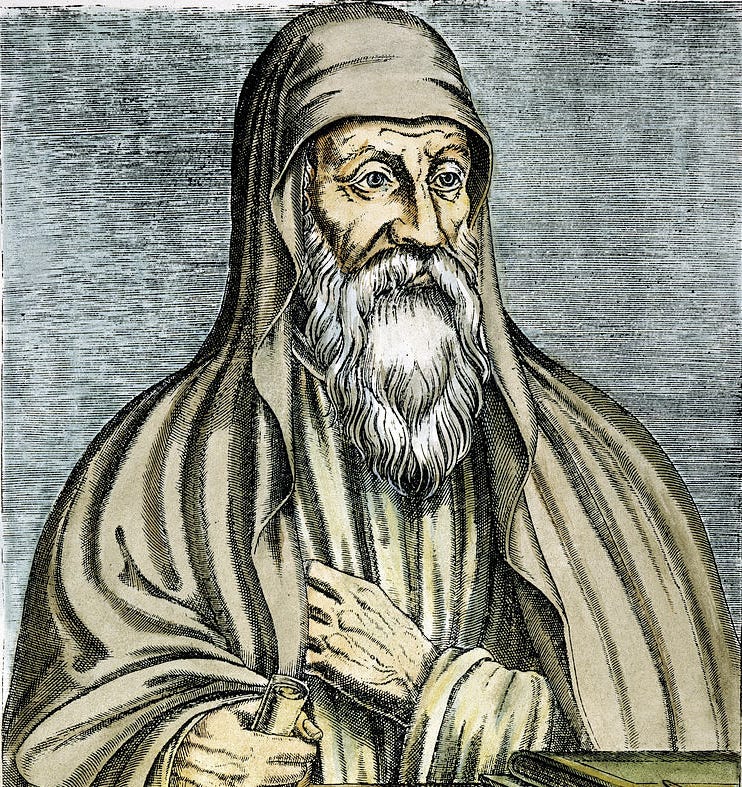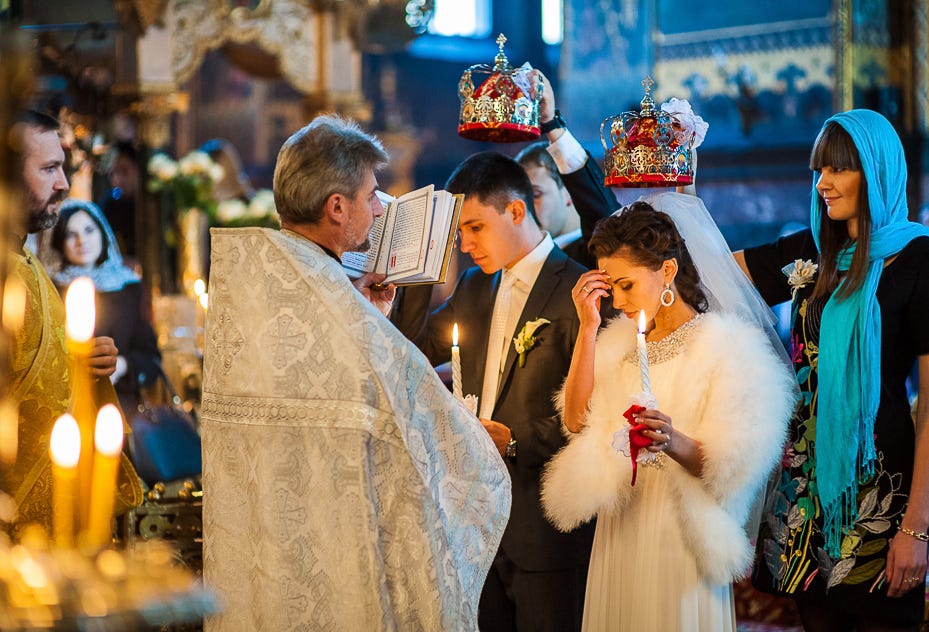The Origen of Christian Sexual Morality
How an ancient theologian points us to Christian marriage
If you were to hold a contest for the most controversial theologian in Christian history, Origen of Alexandria would have to come in near the top of your ranking. In every generation of the Church, the name “Origen” has invoked passionate and polarized opinions.
Why is he such an important figure in church history? First of all, he lived very early — about one John-length lifetime after the Apostle John. He was one of the first major theologians of the church, and he had an influence on every later theologian.
Secondly, Origen was prolific. He is credited with writing more than 2,000 treatises. These include foundational contributions to the Christian faith. For example, Origen was the first man to do comparative study of various translations of the Old Testament side-by-side. Pretty cool.
But hidden in the mountain of scholarship that Origen produced were some wacky ideas that are the source of the controversy surrounding him. One of these is the teaching of the preexistence of the soul. Origen taught that human souls had a previous existence in a spiritual realm that shaped their fate on Earth, much like the 2020 Disney/Pixar animated film “Soul”.
Three centuries after Origen’s death, the teaching of the preexistence of the soul was formally condemned as heresy at an ecumenical council. When a teaching is declared heretical, we say it is “anathema”.
This seemingly obscure anathema against Origen has profound implications for the Christian faith.
Christians believe the human soul is immortal, lasting until eternity. But it does not exist before a person is conceived. This means that the sexual act is a powerful act of creation. The mother and father create an eternally existing person who did not exist before.
Parents often express the feeling that birth is a miracle. According to Christian theology, they are correct. Human procreation is a kind of participation in the creative powers of God — creation ex nihilo. It is the birth of a universe in microcosm, a recapitulation of when the divine logos spoke the world into being with the words “let there be light”.
There are many views on human sexuality in the world today. Some see it as a pleasurable pastime, a healthy exercise, or a way to “express yourself”. The Christian sees human sexuality as something very holy, one of the distinguishing features that marks humanity as being created in the image of God.
So there are two reasons why Christians wrap human sexuality within the protecting confines of marriage. One is the practical implication of human sexuality. Sex often results in infants, who are rather helpless at first. Raising them requires a proper material and moral context.
The second reason for reserving human sexuality for marriage is that it is a holy thing. In the Christian church, holy things are reserved for those who are properly prepared and educated in their meaning. They are set apart and protected from those that would desecrate them or misuse them. Think of the Eucharist. It is reserved for those who have been properly initiated into the church, in good standing, and who have properly prepared themselves. The rite is celebrated in a place that is reserved for it. It is preceded by a set of petitions to God for his favor. The marriage ceremony similarly sets the divine act of creation into its proper context.
Christians are often viewed by the popular culture as killjoys when it comes to sexual activity. But this is because Christians have a higher and holier view of sex than the secular people that might call themselves “sex-positive”.





